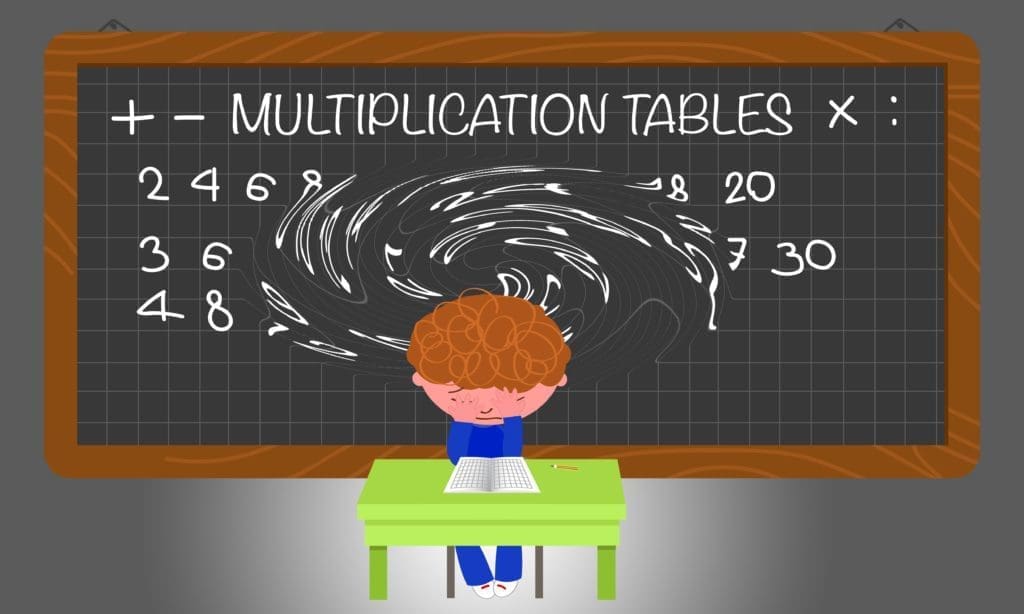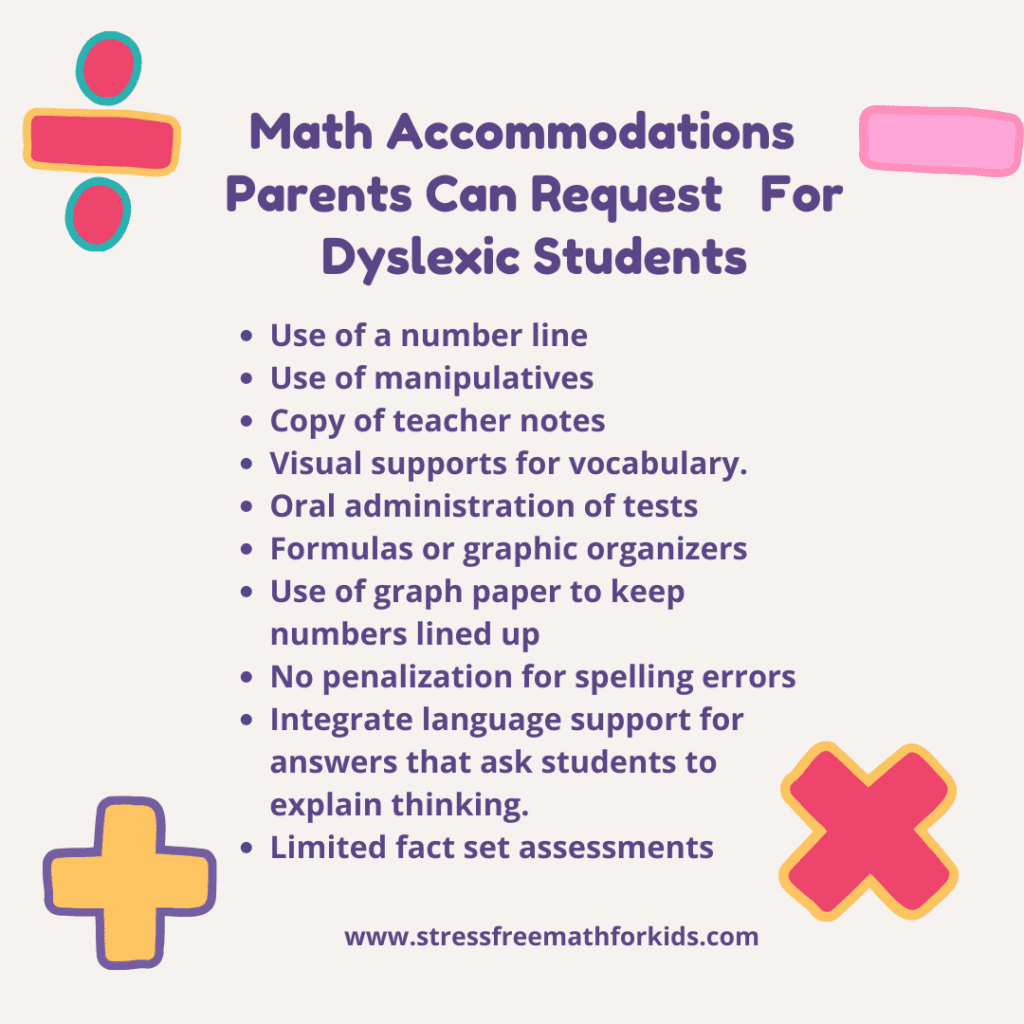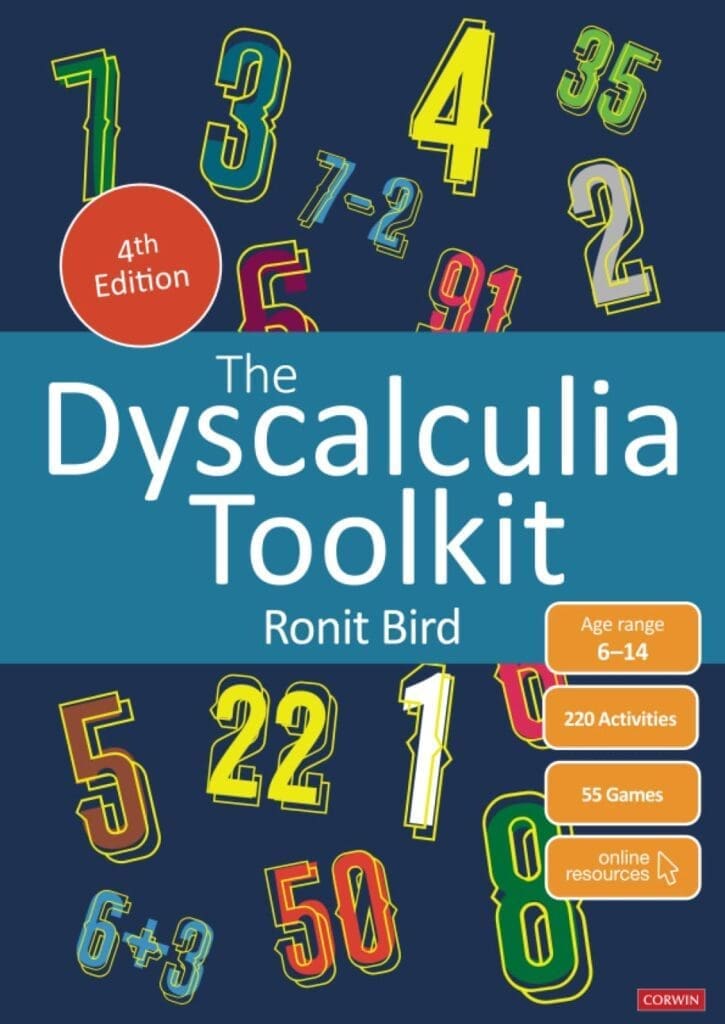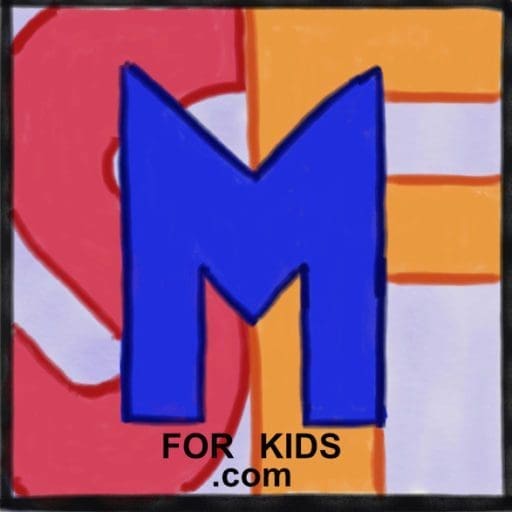
The Difference Between Dyslexia and Dyscalculia
How does dyslexia cause problems in math, and what is dyscalculia?
Dyslexia and dyscalculia are both learning disabilities that can affect a person’s ability to learn in certain areas. Dyslexia primarily affects reading and language skills, while dyscalculia primarily affects math skills. However, dyslexia can affect math skills as well.
Also, many people have both dyslexia and dyscalculia. According to research co-occurrence is found at a rate of approximately 40 percent (click link to read the entire article “The Relationship Between Dyslexia and Dyscalculia,” written by a pediatric neuropsychologist.) Other common co-occurring issues can include ADHD and anxiety.
Approximately one in ten students has a learning disability. For most of them, traditional methods of teaching math are a source of frustration and failure. They find rote memorization to be nearly impossible. Memorizing counting words, then facts, algorithms, and vocabulary is way too much for the struggling brain that cannot easily memorize. Even when children with learning disabilities do memorize, the results usually don’t stick very long. Things are easily forgotten.
Dr. Joan Cotter, Right Start Math
Dyslexia is a learning disorder that affects a person’s ability to read fluently and accurately. People with dyslexia may have difficulty recognizing words, understanding the meaning of what they are reading, and spelling words correctly. Dyslexia is not related to intelligence, and people with dyslexia can be highly intelligent and successful. In fact, 33 percent of people with learning disabilities are also considered intellectually gifted. Read my post Gifted Kids Can Be Dyslexic Too.

Dyscalculia, on the other hand, is a specific learning disability that affects a person’s ability to understand and work with numbers. Current estimates are that 5-7% of children have dyscalculia. People with dyscalculia may have difficulty with basic arithmetic, such as addition and subtraction, as well as more complex math concepts like algebra and geometry. They may also struggle with telling time or counting money. Like dyslexia, dyscalculia is not related to intelligence.
Signs of dyscalculia:
*trouble learning to count (or to count backwards)
*difficulty connecting numbers to objects
*trouble recognizing patterns
*difficulty learning number facts
*difficulty understanding mathematical symbols
*trouble with estimating
*difficulty with understanding money
*difficulty understanding graphs and chart
*slow calculations
*weak at mental math
While dyslexia and dyscalculia are different learning disabilities, they can both have a significant impact on a person’s academic and professional success. It’s important for individuals with these conditions to receive appropriate support and accommodations to help them overcome their challenges and reach their full potential.
Cause and Diagnosis
There is no single cause of either dyslexia or dyscalculia. They are believed to be related to differences in brain structure and function, and both are lifelong “conditions”. They are usually diagnosed through a comprehensive assessment done by an educational psychologist.
In school services and accommodations

These accommodations would also be appropriate for children with dyscalculia. Other in school services and accommodations could include:
- Direct, specialized pull out instruction
- Extra time on assignments, questions and tests
- Use of a calculator
- Modifying the task
- Breaking down complex problems into smaller tasks
While those are formal accommodations, there are many other ways to help students with dyslexia and dyscalculia succeed in math. The main way I have personally found is to teach using multisensory methods.
Multisensory Methods
In short, use visual aids, manipulatives, and movement so kids can learn math!
Studies show that elementary children develop meaningful understanding of mathematical concepts when manipulative materials are used. The use of manipulative materials by young students helps to develop basic skills and results in the enhanced formation of accurate early mathematical concepts. Using manipulatives also develops the ability to visualize and solve problems spatially, which has been proven to have a strong correlation to advanced mathematical skill.
Mathematics For All offers videos and a webinar on teaching math by using a Concrete-Pictorial-Visualization-Abstract that will be very helpful for working with students with dyscalculia. (note the addition of visualization to the more common concrete-pictorial-abstract concept)
For children with dyscalculia, I have seen two specific manipulatives be the most helpful. One is integer blocks such as the ones made by Math U See or Mortensen.
The second is using an abacus that is made like a rekenrek with groups of 5 blue beads and 5 yellow beads on each wire. This is the method used by Right Start Math, which is my favorite homeschool curriculum for kids with dyscalculia (and also offers a Number Sense tutoring kit that could be used even if you don’t homeschool.) Right Start is a solid curriculum for ANY child, but if you would like to read in detail why it is helpful to kids with dyscalculia, read through Teaching Math to Children With Special Needs, a presentation by the writer of the curriculum.
Here is my full list of favorite manipulatives.
Besides manipulatives, movement is incredibly helpful. Consider the following written by Kirk Lunde of Kirk’s Tutoring:
There are a number of things I do based on reading “brain science” research which have been shown to increase each client’s chances of learning. These include providing gum to chew, meeting in restaurants, tutoring outdoors as often as possible, providing opportunities for movement, and giving clients a choice of several scented hand sanitizers. Clients are allowed to lie down, stand on chairs, work on the floor, swing, bounce, and climb trees as available. Students are provided extra large pencils and dry erase markers for writing, or clients tell me the answers and I write for them. Additionally, bilateral movement and crossing midline exercises are included in my “tool kit.” Meeting a client’s sensory needs is an important part of creating an environment where they are able to learn.
Kirk Lunde, Why Multisensory Math, www.kirkstutoring.com
Marilyn Zecher offers training in Multisensory Math
Resources For Learning How Dyslexia Affects Math
Yale Center For Dyslexia and Creativity: Math
The Yale Center For Dyslexia, one of the best general sites for information on dyslexia research, has added an entire section on how dyslexia can affect math skills and strategies for helping dyslexic students.
This site offers research, information and recommended teaching strategies from the University of Michigan.
Davis Math Mastery Program for dyslexic students.
Homeschooling With Dyslexia
Marianne is a homeschooling mom of dyslexic children and author of the book Dyslexia 101. She has developed a comprehensive website which offers parent classes, books, DVDs, teaching tips, curriculum recommendations and more.
Dianne Craft Child Diagnostics
It was through this site that I first started learning about right brain methods to help struggling learners. While she has more resources for reading/writing than math, she does have some ideas I have used for math instruction with great success. In addition to teaching strategies, she addresses brain integration therapy and targeted nutrition/supplements.
6 Surprising Ways Dyslexia Affects Math
Resources For Dyscalculia

The Dyscalculia Toolkit by Ronit Bird (click link to buy on Amazon)
Discovering Dyscalculia is a website that was developed by the mom of a teen with dyscalculia. She has resources for parents, teachers, and adults who have dyscalculia themselves. She has several free resources including a podcast and a blog, and has also written a book.
Dyscalculia Blog is owned by Calcularis, learning software for dyscalculia and math difficulties.
Unlocking Dyscalculia video series by Made For Math, a company which offers online multisensory math tutoring specifically for kids with dyscalculia and dyslexia.
Dyscalculia Tutoring offers 1:1 and group math tutoring, a parent Facebook group, and a free guide to improving your child’s multiplication skills. They also publish a lot of helpful content on Instagram
